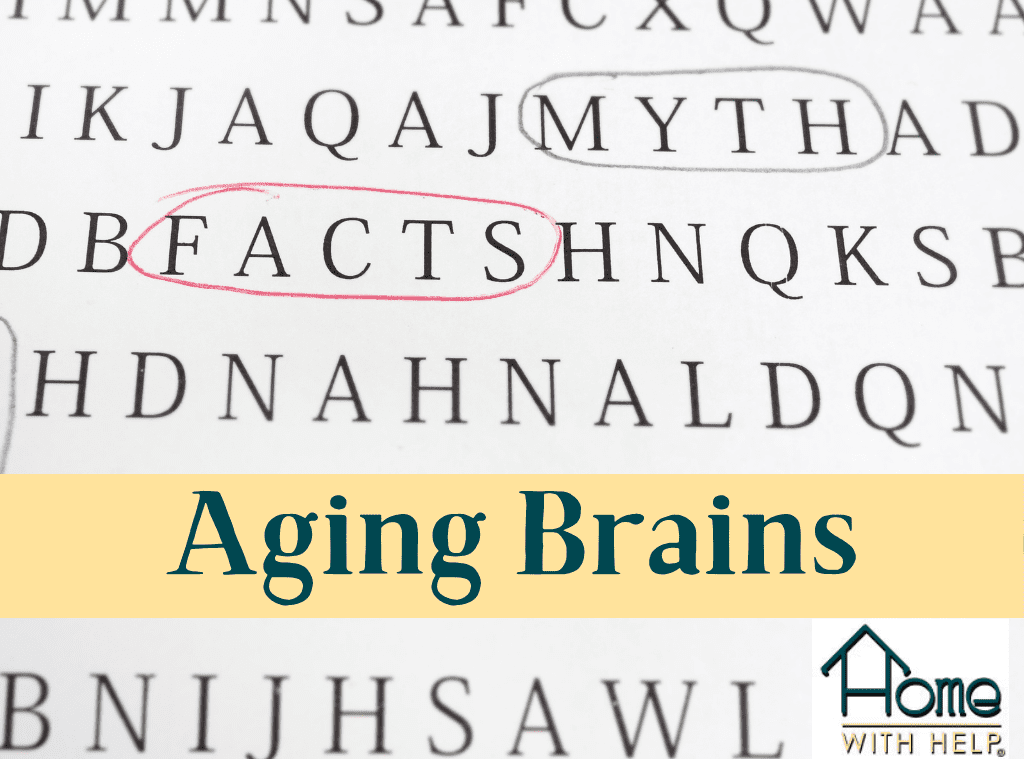
As we age, inevitably our bodies change and so do our brains. There are a number of myths about our brains as we get older. They often portray a negative picture of aging. But, not everything you hear and read about aging is true. So, we thought we would list some common myths about aging brains and the truths behind them.
Myth #1 – Everyone will get dementia
Memory loss seems to be one of the biggest fears people have about aging. But the truth is that Dementia is not a normal part of aging. According to the WHO, the risk of developing dementia increases with age, but it does not affect everyone.
Myth #2 – We can’t learn new things when we get older
That is simply not the case. But, it is true that as we age, it may take longer to learn new skills, actions, and behaviors. It is imperative to continue to use our brains and work on learning. That way we can improve cognitive abilities and keep our aging brains healthy and active.
Myth #3- Older people should avoid exercise
Not having to exercise may sound good, but it is really important to our overall health, especially our brain. There is a lot to gain by being active. Exercise and physical activity are good both for your mental and physical health. It can help make you stronger, prevent bone loss, improve balance and coordination, lift your mood, boost your memory, and even ease the symptoms of many chronic conditions. Exercise can help you maintain your independence longer. It is ok to need help from others, but the stronger you are, the more you can do for yourself. The bottom line in all the research seems to be that exercise is good for the aging brain and body.
Myth #4 – Alzheimer’s Disease and Dementia are the same things
Dementia and Alzheimer’s Disease are not the same. Dementia is a general term used to describe symptoms that impact memory, the performance of daily activities, and our ability to communicate. It is not a specific disease. Alzheimer’s is a brain disease and the most common cause of Dementia. Alzheimer’s disease gets worse with time and affects memory, language, and thought.